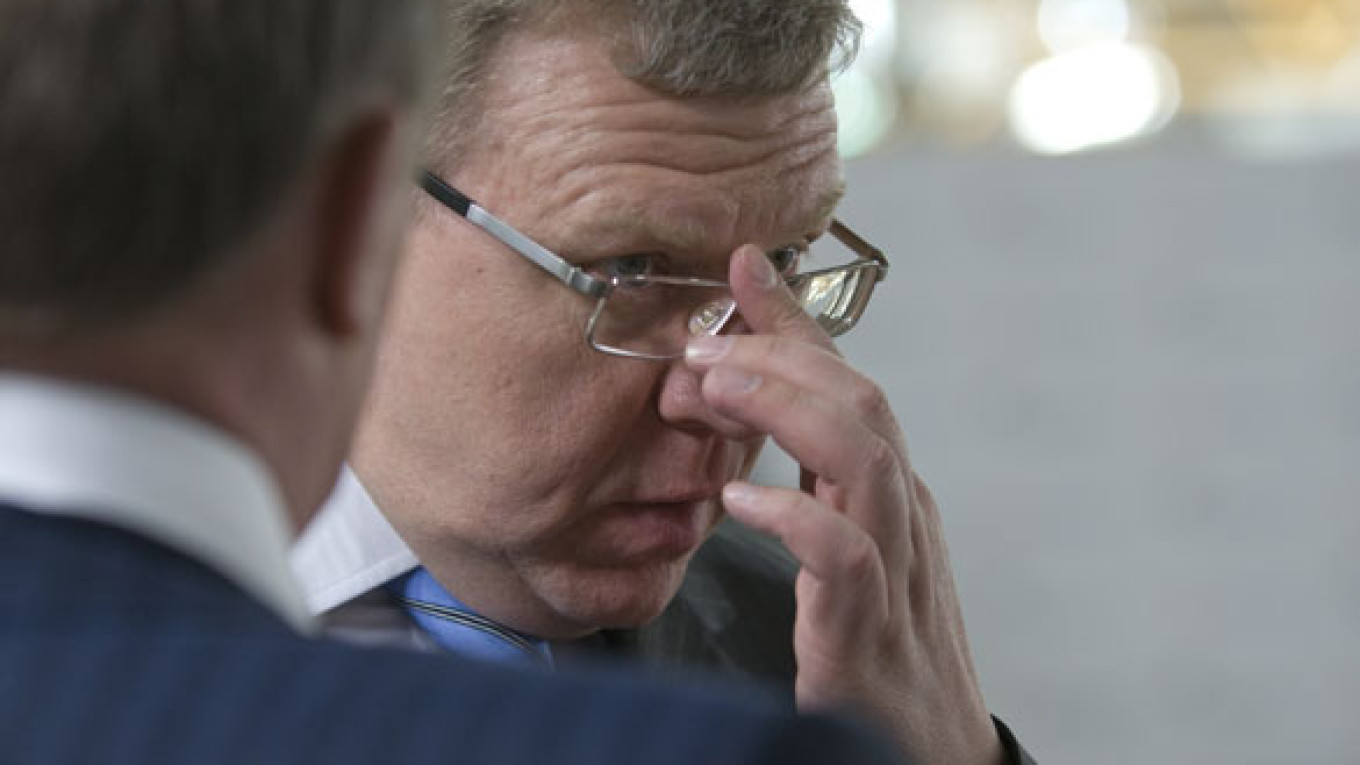The government on Thursday decided to increase spending by 3 percent this year because the recovering economy and expensive oil are generating bigger tax revenues than planned.
Spending will swell by 325.5 billion rubles ($10.3 billion) under the amendments to this year's budget approved by the Cabinet, making it the second consecutive year that revenues have beat expectations in the wake of the 2008 meltdown.
The government will sink almost half of the money into the Pension Fund to cover a shortfall caused by a huge increase in retirement payments, Prime Minister Vladimir Putin said. Most of the remaining cash will buy apartments for World War II veterans and military officers, he said.
"Obviously, thanks to the economic recovery, we now have a chance to increase funding for priority items and to reduce the budget deficit more rapidly,” Putin said. “I will stress, however, that the budget remains under strain.”
Finance Minister Alexei Kudrin said the spending did not risk spurring inflation, which shouldn't top 7 percent this year.
"Our forecast of lower inflation … is exactly why we consider it possible to increase federal spending," Kudrin told reporters after a Cabinet session. "It will not worsen the inflation rate."
The need for an additional transfer to the Pension Fund stemmed from its poor collection of payments so far this year, said Renaissance Capital economist Anton Nikitin.
The 125 billion rubles that Putin earmarked for apartments is almost half of the 280 billion rubles invested in the construction industry in April, the latest month for which statistics are available, Nikitin said. The extra cash injection from the government will provide "serious" support to homebuilders, he said.
In total, additional federal revenues will amount to 833.8 billion rubles, Kudrin said. After the deduction for the spending spike, the rest of the money will go toward plugging the budget deficit to reduce it to 5.4 percent of gross domestic product from the previously planned 6.8 percent, he said.
Kudrin had predicted over the past few weeks that this year's deficit would not top 5.9 percent, which it was last year.
While assigning new spending Thursday, the government also rearranged existing expenses. It allocated more funding to the renovation of Moscow's Bolshoi Theater, St. Petersburg's Mariinsky Theater and a children's recreation center called Okean, or Ocean, near Vladivostok, Putin said. He didn't give disbursement figures.
The government will also spend 16 billion rubles on building roads in large cities and 7.8 billion rubles on security measures for public transportation, Putin said.
Total budget spending will climb up to 7.8 trillion rubles, according to a Finance Ministry statement published on the Cabinet web site.
Additional non-oil and gas revenues will amount to 284 billion rubles. Of that sum, 113 billion rubles will come from the Central Bank's profit for last year, which it contributed to federal coffers, Kudrin said.
Additional oil and gas revenues will represent a much more solid 550 billion rubles, the ministry said in the statement.
The government will probably borrow $10.3 billion less abroad than it planned, setting the total ceiling at $53 billion.
The Cabinet will send the amendments to the State Duma in a matter of several days, Kudrin said.
Putin promised to revisit budget spending in the fall to raise the salaries to federally paid employees such as teachers and doctors if the economy allows. Nikitin said he doubted that the employees would see raises because that would put further, unnecessary strain on federal finances.
A Message from The Moscow Times:
Dear readers,
We are facing unprecedented challenges. Russia's Prosecutor General's Office has designated The Moscow Times as an "undesirable" organization, criminalizing our work and putting our staff at risk of prosecution. This follows our earlier unjust labeling as a "foreign agent."
These actions are direct attempts to silence independent journalism in Russia. The authorities claim our work "discredits the decisions of the Russian leadership." We see things differently: we strive to provide accurate, unbiased reporting on Russia.
We, the journalists of The Moscow Times, refuse to be silenced. But to continue our work, we need your help.
Your support, no matter how small, makes a world of difference. If you can, please support us monthly starting from just $2. It's quick to set up, and every contribution makes a significant impact.
By supporting The Moscow Times, you're defending open, independent journalism in the face of repression. Thank you for standing with us.
Remind me later.


